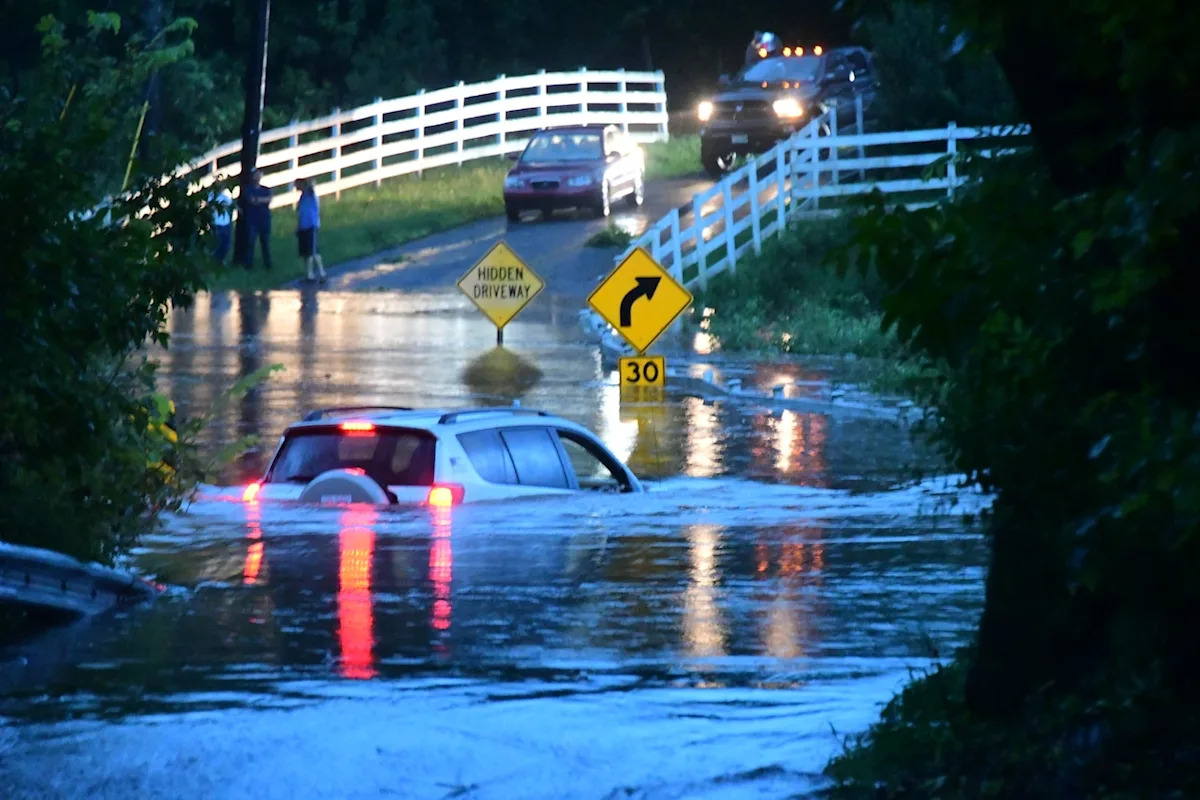The devastating impact of Tropical Storm Ida in September 2021 remains etched in the memory of Raritan Township residents.
Few people in Raritan Township will ever forget the 11 inches of rain that Ida dumped or the six people who drowned in Hunterdon County.
First responders rescued 86 people in Raritan Township during that storm, which killed 30 people statewide and remains one of New Jersey’s deadliest storms.
Ida followed Superstorm Sandy (2012), Hurricane Irene (2011) and Hurricane Floyd (1999) — not to mention the numerous flash floods that happen every summer that are every bit as dangerous.
Four years after Ida, and with another hurricane season upon us, Raritan Township is starting its own stormwater utility to raise money to improve its infrastructure and mitigate flood risks associated with climate change.
The Raritan Township Committee in June voted unanimously to create the stormwater utility, which is funded through an assessment levied against each property owner.
Although critics call the assessment a “rain tax,” Raritan Township Mayor Bob King said flooding has to be addressed, and rather than allocate money from the municipal budget, the utility provides a stable source of funding for infrastructure maintenance.
“Basically it comes down to, how are we going to fund the work that we have to do?” King said.
King said every municipality in New Jersey must conform to stormwater regulations set by the DEP. The choice came down to raising municipal taxes or creating the utility in town where flooding has taken lives, he said.
“We don’t want anyone to die in our town,” King said.
The state Legislature allowed municipalities to establish stormwater utilities when it adopted the Clean Stormwater and Flood Reduction Act of 2019. But the idea has been slow to catch on; Raritan Township is just the third municipality to form one; the others are New Brunswick and Maplewood.
To fund the utility, each landowner is assessed an annual fee, based on the total square footage of impervious coverage on their property. An impervious coverage is any surface that doesn’t absorb water: a rooftop, driveway, walkway or parking lot.
Raritan Township says property owners will receive their first bill in September. That bill, which is for the final quarter of 2025, represents about one-third of what the property owner can expect to pay in 2026.
Raritan Township estimates that the average single-family homeowner will pay between $60 and $240 a year. But big box retail stores that have big parking lots, like supermarkets, are going to be on the hook for thousand of dollars annually.
Churches and non-profits, which are exempt from property taxes, are not exempt from the stormwater fee. The only properties that are exempt are federal buildings and agricultural land that absorbs water.
Critics may see it as a tax, but supporters say a stormwater utility is the fairest and most equitable way to maintain and improve the network of pipes, detention basins, and culverts that can be overwhelmed by torrential rain.
Another important function of the utility will be leaf collection and street sweeping, King said. Property owners who reduce their impervious surface by planting a rain garden or installing can apply for credit, the mayor said.
The township’s consultant, Arcadis, estimates the utility will have an operating budget of $1.8 million in 2026.
Ed Potosnak, the executive director of the New Jersey chapter of the League of Conservation Voters, said 15% of the state’s land mass is concrete, which rain just bounces off. And the percentage of imprevious surface is much higher in urban areas, where flash floods are becoming more frequent and deadly.
“It’s nobody’s fault, but our development was done without proper stormwater management,” Potosnak said. “A stormwater utility is the most equitable way to address solutions, because the folks who are most responsible for creating the runoff problem pay for the problem.”
Historically, cities and towns have funded stormwater management through the municipal budget, often relying on state and federal matching grants. But Potosnak warns those funds are drying up now that the Trump administration has cut funding to FEMA and to flood mitigation.
“Money is just not being airdropped in for these kinds of projects,” Potosnak said. “Responsible governments are going to have to explore setting up stormwater utilities.”
Our journalism needs your support. Please subscribe today to NJ.com.
Richard Cowen may be reached at rcowen@njadvancemedia.com.

